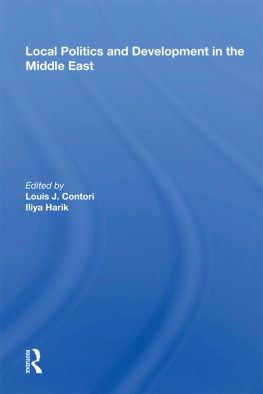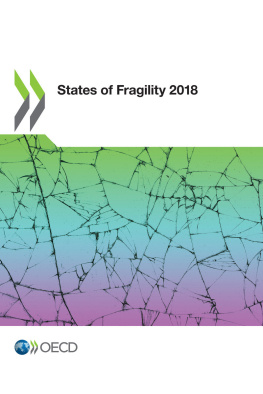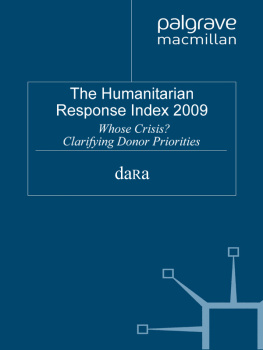
Implementing Development Assistance
Westview Replica Editions
The concept of Westview Replica Editions is a response to the continuing crisis in academic and informational publishing. Library budgets for books have been severely curtailed. Ever larger portions of general library budgets are being diverted from the purchase of books and used for data banks, computers, micromedia, and other methods of information retrieval. Interlibrary loan structures further reduce the edition sizes required to satisfy the needs of the scholarly community. Economic pressures (particularly inflation and high interest rates) on the university presses and the few private scholarly publishing companies have severely limited the capacity of the industry to properly serve the academic and research communities. As a result, many manuscripts dealing with important subjects, often representing the highest level of scholarship, are no longer economically viable publishing projects--or, if accepted for publication, are typically subject to lead times ranging from one to three years.
Westview Replica Editions are our practical solution to the problem. We accept a manuscript in camera-ready form, typed according to our specifications, and move it immediately into the production process. As always, the selection criteria include the importance of the subject. the works contribution to scholarship, and its insight, originality of thought, and excellence of exposition. The responsiblity for editing and proofreading lies with the author or sponsoring institution. We prepare chapter headings and display pages, file for copyright, and obtain Library of Congress Cataloging in Publication Data. A detailed manual contains simple instructions for preparing the final typescript, and our editorial staff is always available to answer questions.
The end result is a book printed on acid-free paper and bound in sturdy library-quality soft covers. We manufacture these books ourselves using equipment that does not require a lengthy make-ready process and that allows us to publish first editions of 300 to 600 copies and to reprint even smaller quantities as needed. Thus, we can produce Replica Editions quickly and can keep even very specialized books in print as long as there is a demand for them.
About the Book and Author
Implementing Development Assistance: European Approaches To Basic Needs
Steven H. Arnold
Although much has been written about development assistance to the Third World, nearly all the attention has focused on U.S. programs and policy. The important and growing commitment of European countries--which now collectively account for over half of all development assistance provided by the industrialized nations--has been virtually ignored. European nations, like the u.s., support in principle a basic needs focus in their assistance programs, but the strategies they employ reveal a variety of styles and technical approaches, many of which could be useful in improving U.S. aid programs.
This study describes and analyzes the development assistance programs of the five major European donors: France, Germany, the Netherlands, the United Kingdom, and Sweden. Drawing on primary sources and interviews with representatives of the various assistance agencies and with outside experts, Dr. Arnold describes each countrys program in terms of three general areas: the evolution of its philosophy and overall policy goals, the organizational structure of the government institutions concerned with development assistance (including the relationship of these institutions to legislative and other policymaking bodies), and the content and procedures of the assistance programs.
Steven H. Arnold is associate professor and codirector of the International Development Program of the School of International Service, The American University. His previous research has focused primarily on the role of multilateral assistance agencies in aiding Third World nations.
First published 1982 by Westview Press
Published 2018 by Routledge
52 Vanderbilt Avenue, New York, NY 10017
2 Park Square, Milton Park, Abingdon, Oxon OX14 4RN
Routledge is an imprint of the Taylor & Francis Group, an informa business
Copyright 1982 by Taylor & Francis
All rights reserved. No part of this book may be reprinted or reproduced or utilised in any form or by any electronic, mechanical, or other means, now known or hereafter invented, including photocopying and recording, or in any information storage or retrieval system, without permission in writing from the publishers.
Notice:
Product or corporate names may be trademarks or registered trademarks, and are used only for identification and explanation without intent to infringe.
Library of Congress Cataloging in Publication Data
Arnold, Steven H.
Implementing development assistance.
(A Westview replica edition)
Bibliography: p.
1. Economic assistance, European. I. Title.
HC60.A753 1982 338.91401724 82-11106
ISBN 0-86531-904-9 (pbk.)
ISBN 13: 978-0-367-02008-8 (hbk)
Although much has been written about development assistance to the third world, most of the attention has focused upon United States programs and policy. Virtually ignored has been the important role of th.e European nations, which now collectively contribute over half of all development assistance provided by the DAC members. Furthermore, while the Europeans, like the United States, support in principle a basic needs focus to their development assistance programs, the policies employed to implement this general commitment reveal a rich variety of national styles and technical approaches.
For Americans concerned with development cooperation, the various European experiences assume particular significance. Not only is Europe important in terms of the amounts of development assistance contributed, but in addition the interest and concern of many European donors serves as a useful counterweight to the U.S. experience which has been characterized by a long-term erosion of commitment (measured in terms of volume) as well as a present administration which has placed the development agenda even more firmly in the background.
The purpose of this study is to begin to describe some of these European alternatives. Utilizing largely primary documents and interviews with representatives of the various donor agencies, this study describes the development assistance policies, programs, and procedures of the five major European donors. While recognizing that such an analysis is not necessarily representative of donor agencies in general, the study does draw some tentative conclusions regarding some of the tradeoffs which appear inherent in development assistance, as well as the ways in which the five donors have dealt with these tradeoffs.
The nature of this undertakingnecessitated considerable field work which would not have been possible without support from many sources. A combination of a sabbatical and a London teaching assignment arranged through my home institution, The American University, allowed me to spend the 197980 academic year in Europe. Additional support provided by the Development Studies Program of the Agency for International Development enabled me to establish contact with the various donor agencies, and to visit them personally in order to conduct the interviews and obtain the primary documents necessary for the study. Basic preliminary research was carried out at the library of the Institute of Development Studies at the University of Sussex, and I would like to extend a particular note of thanks to the staff and to Richard Jolly, then acting director of IDS, for making it possible to use this excellent facility.








